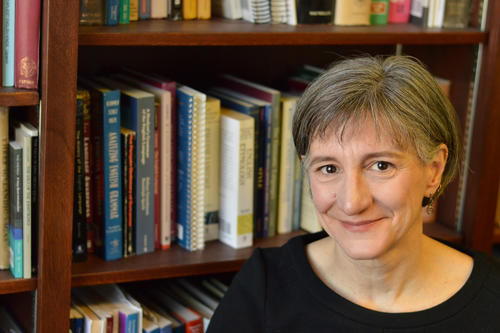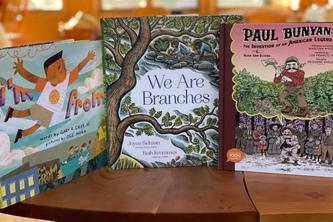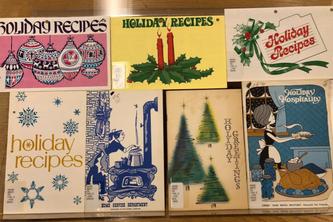
The final season of HBO’s “Game of Thrones” premieres on April 14, the last chapter of a medieval-inspired saga that has become a worldwide phenomenon.
But how does Game of Thrones’ depiction of a medieval society compare with other fictional portrayals of the time period?
University of Minnesota Morris Medievalist Janet Schrunk Ericksen, an associate professor of English and interim vice chancellor for academic affairs and dean, is available for comment on increased public interest in Medieval Europe, what showrunners get right — and wrong — about the time period and what we all should know ahead of the season premiere.
Janet Schrunk Ericksen, Ph.D.
On what “Game of Thrones” showrunners get right — and wrong — about the time period:
"Medieval literature and culture are far from a unified whole, and even in a single country such as England, massive changes in daily life and politics occur between the early period, before about 1000, and the later (such as the 1400s). Some of the literature and history, though, provide particularly neat parallels to “Game of Thrones” and its inspiration, “A Song of Ice of Fire.” The “Peterborough Chronicle” entry for the year 1137, for instance, describes England under King Stephen as a land filled with power-hungry castle builders, men who value wealth over honor, who oppress those around them and torture (in vividly described, horrifying ways) whomever they wish. At about the same time and for nearly 20 years, in a period of civil war known as “The Anarchy,” the rule of England was contested between Stephen and his cousin, Matilda, the daughter of King Henry I of England. Matilda — also known as Maude and characterized by her male contemporaries as arrogant — was a strong leader who nearly won the civil war. I think she might have enjoyed meeting Cersei Lannister (or maybe not)."
On how the public became enamored with Medieval Europe:
"Interest in the Middle Ages has risen and fallen for at least the last 200 years. The mid-late 19th century, in England in particular, saw great enthusiasm for the period, and Peter Jackson’s adaptation of J.R.R. Tolkien’s “Lord of the Rings” fueled the most recent surge of interest. University students often have familiarity with games — Skyrim, Carcassonne, the hugely popular Dungeons & Dragons, and so many more — that draw on medieval literature and culture.
"On one hand, interest in the field is great, and it brings in enthusiastic students; on the other hand, students generally have to work hard to figure out which fictional portrayals really have historical evidence and which don’t. The popular culture constructions of the Middle Ages often tell more about us than they do about the actual historical periods. Studying medieval culture, however, can really help students develop a tolerance for ambiguity, the ability to re-evaluate what appears familiar and actually is more different than they realize, and the skills to make sense of disparate pieces and incomplete information."
On what we all should know ahead of the final season premiere:
"The European Middle Ages lasted 1,000 years and varied across countries and cultures. “Game of Thrones” pulls from all over that stretch, taking bits from wherever the new fiction wants them, and the series imagines as much as it incorporates. Much of what the series presents has more in common with post-medieval literature of the 1500s. The real connection between the medieval, the early modern, and the modern periods, in this case, might lie in entertainment tastes: if you like “Game of Thrones,” go read some medieval romances (ones by Chretien de Troyes, for instance, or the lais of Marie de France) or some medieval saints’ lives (so much politics and violence) to get a sense of how much medieval audiences might have liked “Game of Thrones” as entertainment."
Janet Schrunk Ericksen has held the position of interim vice chancellor for academic affairs and dean since August 2017. She earned a Bachelor of Arts in English and art history at the University of Kansas, then a Master of Arts and doctorate at the University of Illinois at Urbana-Champaign, with a specialization in early medieval English literature. Ericksen is a 2008 recipient of the Horace T. Morse Undergraduate Teaching Award and a 2006 recipient of the University of Minnesota, Morris Alumni Association Teaching Award.
Contact Information:
To arrange an interview, contact Jenna Ray, public relations, at (320) 589-6068 or [email protected].
- Categories:
- Arts and Humanities





